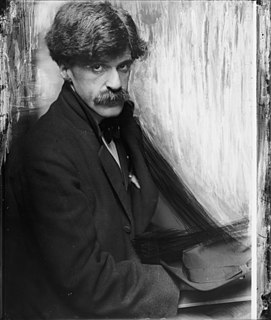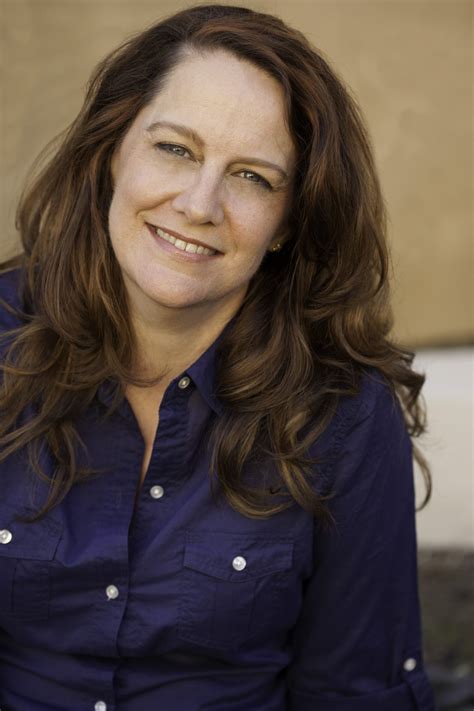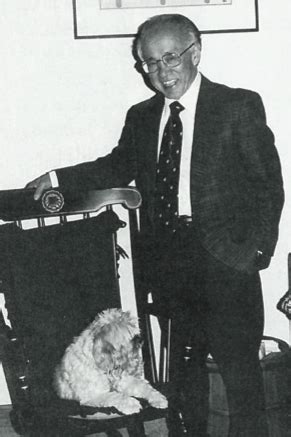A Quote by Tenzin Palmo
When one has a decisive realization of the inherent nature of the mind, which has no ego, it has no sense of duality between oneself and the cup, and a deep sense of interpenetration of the whole dharma. Then whatever we do is spontaneously perfect Buddha activity. And anybody who is even slightly tuned in will get a very deep experience of that.
Related Quotes
I say that creeds, dogmas, and theologies are inventions of the mind. It is the nature of the mind to make sense out of experience, to reduce the conglomerates of experience to units of comprehension which we call principles, or ideologies, or concepts. Religious experience is dynamic, fluid, effervescent, yeasty. But the mind can't handle these so it has to imprison religious experience in some way, get it bottled up. Then, when the experience quiets down, the mind draws a bead on it and extracts concepts, notions, dogmas, so that religious experience can make sense to the mind.
The idea of buddha mind is not purely a concept or a theoretical, metaphysical idea. It is something extremely real that we can experience ourselves. In fact, it is the ego that feels that we have an ego. It is ego that tells us, My ego is bothering me. I feel very self-conscious about having to be me. I feel that I have a tremendous burden in me, and I wonder what the best way to get rid of it is. Yet all those expressions of restlessness that keep coming out of us are the expression of buddha nature: the expression of our unborn, unobstructed, and nondwelling nature.
To think that practice and realization are not one is a heretical view. In the Buddha Dharma, practice and realization are identical. Because one's present practice is practice in realization, one's initial negotiating of the Way in itself is the whole of original realization. Thus, even while directed to practice, one is told not to anticipate a realization apart from practice, because practice points directly to original realization.
We all are motivated by deep impulses and deep appetites to serve, even though we may not be able to locate that which we are hoping to serve. So this is just a part of my nature and I think everybody else's nature to offer oneself at the critical moment when the emergency becomes articulate. It's only then that we can locate that willingness to serve.
I had a client who just wanted to entertain me the whole time, that is a defense against going deep, in my mind. What happens when the jokester is not allowed to deflect with humor? You then have to feel the pain, and learn that you can survive it. It makes you more resilient and stronger in the long run, and your sense of humor will always be there. Being able to see the funny is deep.
People will listen to sophisticated physicists, using God as a kind of metaphor for the deep constants, the deep problems, the deep principles of physics, and say that in that sense I believe in God. The reaction is, "Oh, this great physicist believes in God - that means I'm free to believe in the trinity and in the crucifixion and in the reincarnation of Christ" - and all that stuff, which of course has nothing whatever to do with the fundamental constants of physics, which is what these physicists are talking about.
When you awaken, you know that everything that occurs at the level of mind is illusory in nature and so you no longer believe in it as the truth of life. It is sometimes happy and sometimes sad, because it is a world of duality. You relax and accept the dual nature of the world of the mind and the world of experience within time. This will create balance within duality which will open the doorway to Oneness.
Ultimately, there is no such thing as "my consciousness," but just the one consciousness and to sense your connectedness with the one (I can sense that continuously, which is why I can say that I know this for sure) to sense that connectedness with the one consciousness that pervades the universe, which in some traditions is called God, to sense that frees you of fear, from anxiety, and takes you to a very deep place of peace, but also of heightened aliveness.
...Bliss is not something to be got. On the other hand you are always Bliss. This desire [for Bliss] is born of the sense of incompleteness. To whom is this sense of incompleteness? Enquire. In deep sleep you were blissful. Now you are not so. What has interposed between that Bliss and this non-bliss? It is the ego. Seek its source and find you are Bliss.
Dharma has several connotations in South Asian religions, but in Buddhism it has two basic, interrelated meanings: dharma as 'teaching' as found in the expression Buddha Dharma, and dharma as 'reality-as-is' (abhigama-dharma). The teaching is a verbal expression of reality-as-is that consists of two aspects-the subject that realizes and the object that is realized. Together they constitute 'reality-as-is;' if either aspect is lacking, it is not reality-as-is. This sense of dharma or reality-as-is is also called suchness (tathata) or thatness (tattva) in Buddhism.
What is magic? In the deepest sense, magic is an experience. It's the experience of finding oneself alive within a world that is itself alive. It is the experience of contact and communication between oneself and something that is profoundly different from oneself: a swallow, a frog, a spider weaving its web.



































